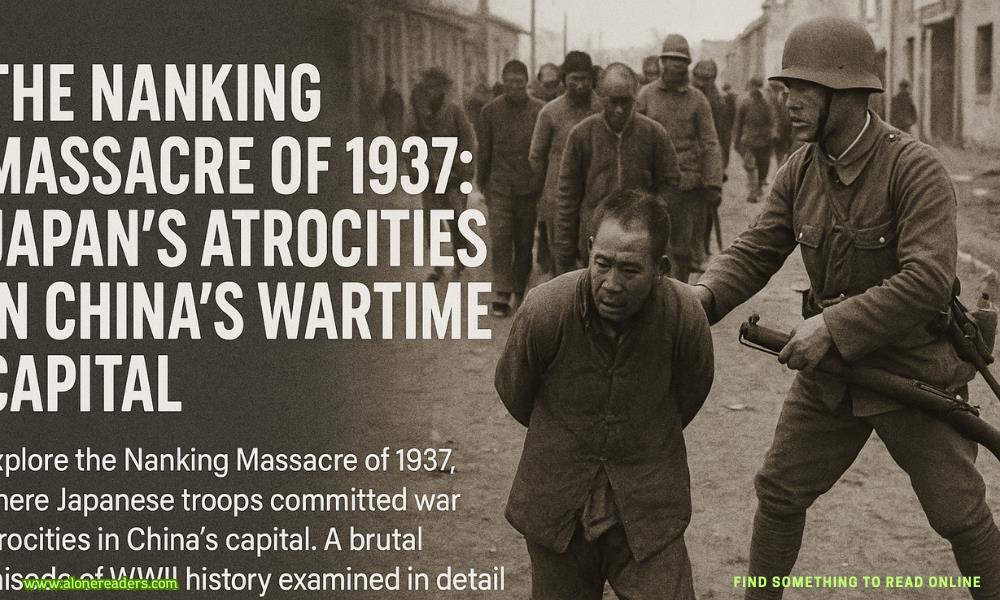Page 44 of Six Wild Crowns
“I’m not. I don’t think he’ll adore me at all.”
Boleyn is taken aback by Seymour’s honesty, but she is still hiding something.
“Then what do you want, Lady Seymour?”
That flick of the eyes again, first to Boleyn’s eyes, then down to her mouth – what does it mean?
“Safety. That is all I want,” Seymour says.
Boleyn’s laughter echoes strangely through the font – the rock amplifies the sound while the steam distorts it. She is reminded of Wyatt’s impromptu poem:thunder circles the throne. Seymour is naive indeed if she thinks that safety is simple, or that she will find it in a crown.
“That is all,” Boleyn repeats, more quietly now. “Is that all?”
She leans towards Seymour, tilting her head up to reach the other woman’s ear. “Do you know what I despise about women like you? That you make people believe that purity and goodness go hand in hand with stupidity. It is a very clever ruse, but it is still a ruse. The cleverest thing you ever did was to make people think you are stupid, and every time you do it, you make women weaker.You leach us of our power. There is nothing good or pure in that. You should be ashamed.”
That’s when Boleyn feels it: the way Seymour angles her cheek, her ear, towards Boleyn’s mouth. Her eyes are closed, but not in fear or anger. They are closed, soft as prayer, the way Boleyn closes her eyes when Henry is kissing her. And just like that, Boleyn solves the riddle.
CHAPTER NINETEEN
Seymour
Seymour feels the change in Boleyn before she even opens her eyes. The queen knows – knows that Seymour is in love with her. Seymour moves as though she’s been attacked, pulling away from the source of her torment and slipping on the ledge in her haste. She goes under, inhaling rancid water that burns her throat. The nuns haul her onto the side of the font and pound her on the back until she has cleared her lungs. She takes deep, wracking breaths and looks anywhere, anywhere but at the queen, until the nuns, satisfied that she’s out of danger, retire into the depths of the steam once more.
“How long?” Boleyn asks, so quietly that Seymour can barely hear her.
“Don’t pity me,” Seymour says. She’s spent a lifetime having people feel sorry for her, and she’s borne it. With Boleyn it’s different. Pity and Boleyn don’t belong together. She will take insults and ill will from the queen, but she will not take compassion.
“How long?” the queen asks again.
“Just because I love you does not mean I like you.”
They stare at each other through the haze. To Seymour, the font feels colder than it should. The room stale and the water rotten.The only magic here is in the pregnant woman standing before her, water lapping at her collarbones. Boleyn’s mouth twitches.
“I think that’s the first truly honest thing you’ve said to me, Lady Seymour.”
Another bout of coughing assaults Seymour, and before she can stop herself, her coughs turn to laughter. Before long, both women are heaving with mirth. The nuns appear once more, fluttering in distress until Boleyn and Seymour have control of themselves. Seymour feels their judgement as they wrap her and Boleyn in robes and brush out their damp hair.
Two simple lodging houses run adjacent to the font: one for the keeper and nuns, the other for the royal family and their guests and servants. Boleyn and Seymour are shown into the latter, hewn from the same ice and rock as the font but with little of that building’s warmth. They dine simply and in near silence, the weight of Seymour’s confession lying heavily between them. Seymour shivers through the meal, even though a fire staves off the worst of the mountain chill.
“It is your wounds healing,” Boleyn says, observing her. “The waters are still at work in your body.”
Seymour flexes her hands, still unwrapped. Skin, glistening, light brown, unfurls across the bare sinew and muscle like ice forming on glass.
Afterwards, they are shown into the only bedchamber and helped out of their gowns and into linen shifts. Seymour settles herself onto a long-chair strewn with furs and thick blankets, while Boleyn takes the bed. The nuns who had been attending them curtsey as they leave, closing the door behind them. Boleyn blows out the sole candle beside her bed, allowing shadows to flood the room. Outside, a howl from some creature rises above the moan of the wind.
“It will be warmer for both of us if we share the bed.” Boleyn’s voice comes through the darkness.
Seymour must be dreaming already. The room is so still, so unreal, as she pads from the long-chair to the four-poster bed and slips beneath the blankets. The covers are thicker than hers were, and her feet find the warm patch left by the bedpan. The bed islarge enough that Seymour would need to reach out her arm to touch Boleyn, but the proximity is enough to bring Seymour’s breath to the top of her throat. Boleyn’s pale figure shifts so that she’s facing Seymour. When she speaks, her voice is barely audible over the wind.
“Is it only women you love? Or are you like my brother?”
Seymour bridles at the question. It’s never been as simple to her aswomenormen. She has never loved abodyin its entirety. She loves specifics: a particular smile, or a turn of phrase spoken in a certain accent, or, in Boleyn’s case, her hair.
“The first person I ever loved was my servant, and they’re neither man nor woman,” she says. It’s the first time she’s admitted this to anyone, even Clarice.
“And men? Can you love men?” Boleyn says.
“Yes.” She had a dalliance with one of Thomas’s friends a few years ago. He was a sweet boy, out of his depth in Thomas’s circle, and they used each other to explore what felt nice and what felt uncomfortable.
- The Prince's Secret Twins by Elizabeth Lennox
- Tangled Desires by Tory Baker
- At the Edge of Surrender by A.L. Jackson
- A Touch of Fate by Cora Reilly
- Untouchable Love by Lucy Darling
- After Hours by Caitlin Crews
- Shelter from the Storm by Mari Carr
- Someone Knows by Vi Keeland
- Hawk by Fiona Davenport
- The Silencer by Brooke Summers
- The Beat of her Heart by Emily Hayes
- The Neighbor's Son by K. Webster
- Vasily the Hammer by C.B. Alice
- Convenient Vows by D.C. Beks
- Wrapped in Silver by Sara Vice
- Ruined By Capture by Sherry Blake







